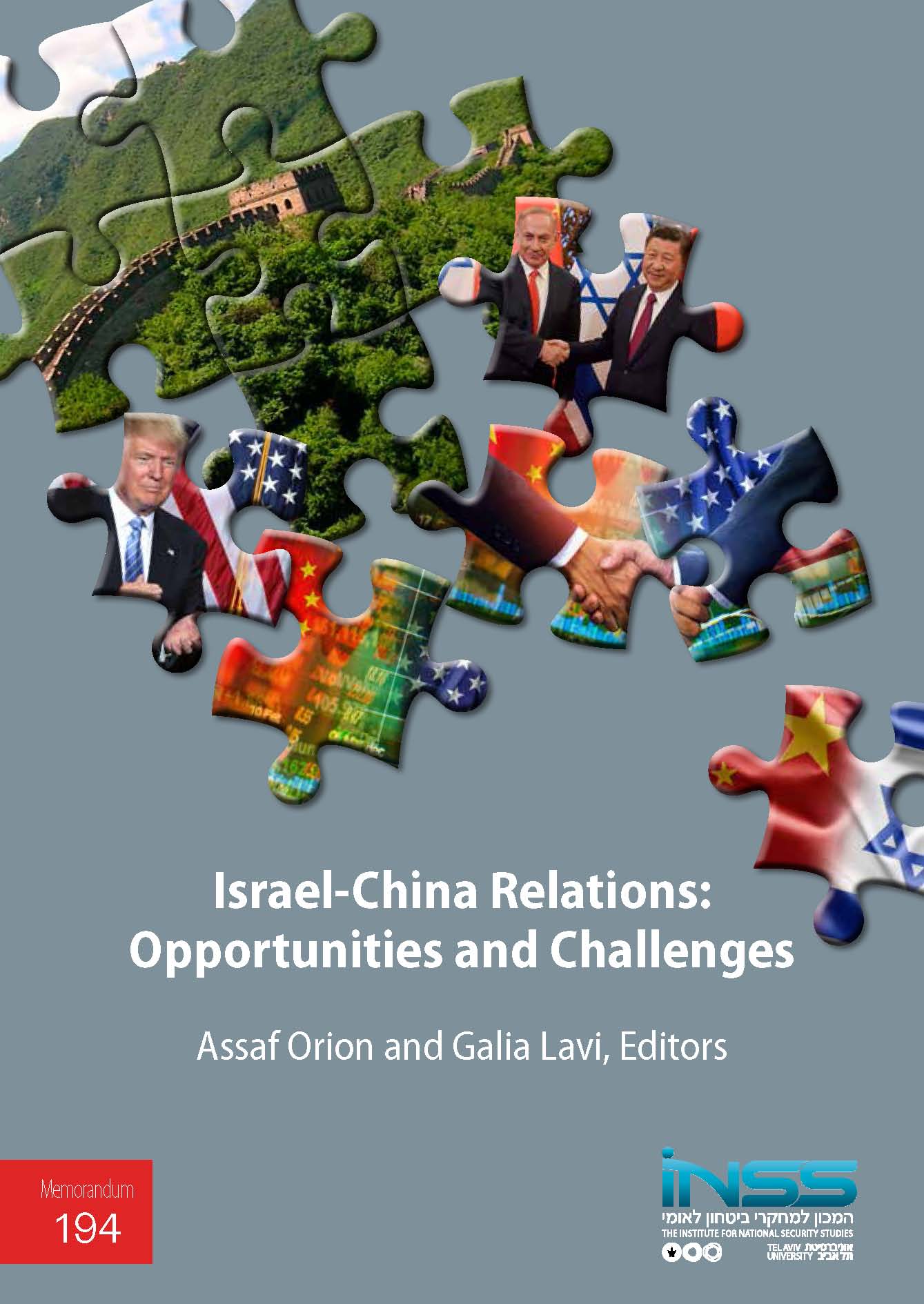Publications
Memorandum No. 194, INSS, August 2019

In 2017, Israel and China marked 25 years of diplomatic relations. The establishment of diplomatic relations was made possible in part by geo-strategic changes – the dissolution of the Soviet Union and the Communist bloc, and the Madrid Peace Conference in November 1991. During a single week in January 1992, Israel established relations with both China and with India. The nature of Israel-China relations has changed over the years. In general, the first decade of relations focused on close relations between the military establishments and sales by the Israeli defense industry (which had already begun in the 1980s). The second decade, in light of the decline of the military-defense component following the Phalcon and Harpy crises, focused on intensive agricultural cooperation, which was also at the core of the activity of Israel’s diplomatic missions in China since the establishment of relations. This involved the creation of a number of Israeli demonstration farms in the field of greenhouse crops, research, and growing vegetable seeds, and a demonstration dairy farm in Beijing. China was designated as a target country for Mashav, the Agency for International Development Cooperation in the Israeli Ministry of Foreign Affairs. In this framework, hundreds of training courses in agriculture, entrepreneurship, education, and health were held in China and Israel, and were highly valued by the leadership in Beijing and the various provinces in China. The third and current decade of relations is marked by strengthened economic relations and cooperation in the field of innovation.
In 2018, China marked four decades since the economic reforms initiated by Chinese leader Deng Xiaoping, which included China’s opening up to the world and to the West in particular, and which led to rapid growth, with almost double-digit average annual growth and to China becoming the second largest economy in the world.1 Now China is focusing on more moderate growth, what is known as the “New Normal,” placing an emphasis on innovation as a growth engine at the expense of production, export, and investments. Indeed, in the coming years China’s economy will be based on domestic research and development, knowledge-intensive industries, services, and increasing domestic consumption. A central reason for this is the heavy environmental price of accelerated development, but no less important is China’s ambition to compete in the leading markets of Europe and North America with flagship Chinese technology products, as an equal with the developed economies. This economic strategy is expressed both in the 13th five-year plan for 2016-2020, and in the report of the 19th Communist Party Congress, which sets 2035 as a target year for making China “a world leader in innovation.”


